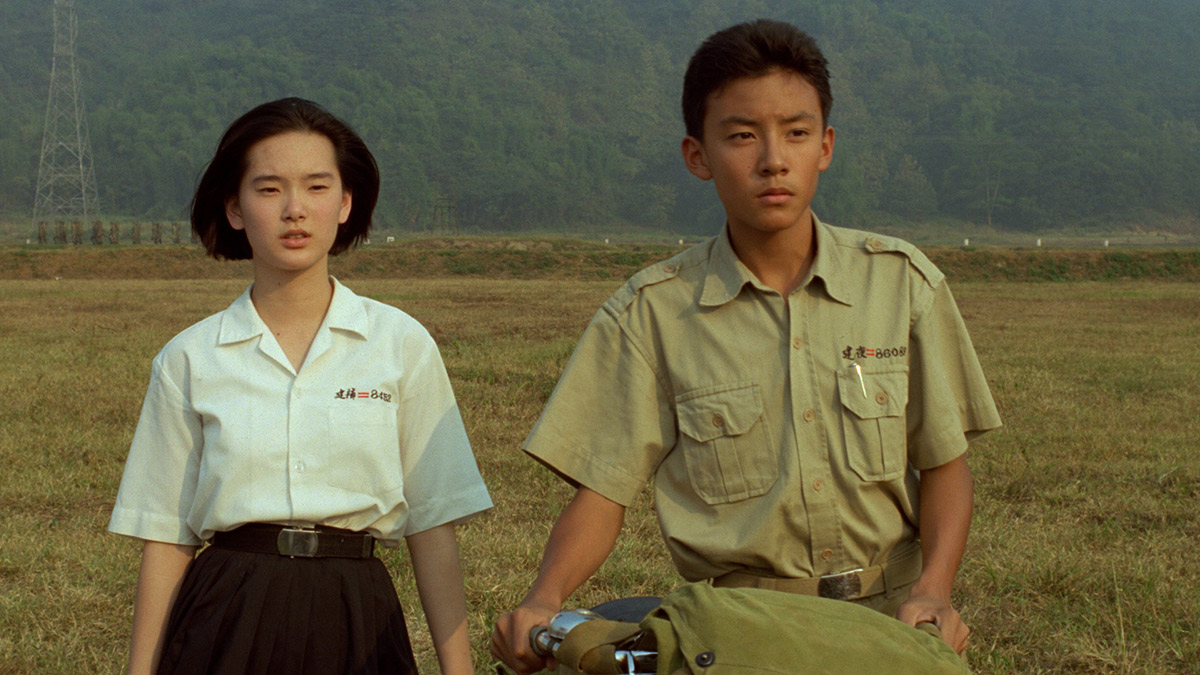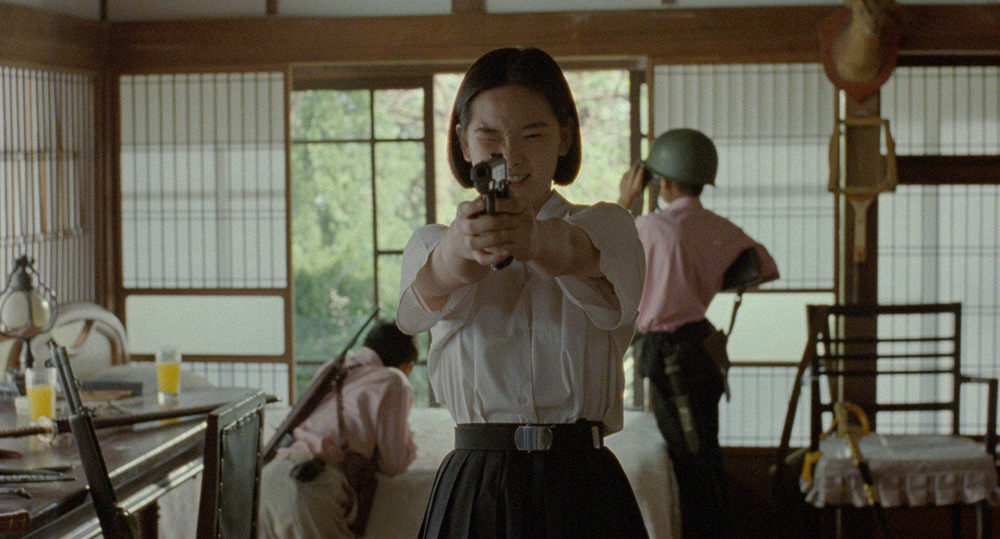
(C)1991 Kailidoscope
“A Brighter Summer Day” A “Intolerance that cannot be filled” in a perfectly constructed world *Note! Contains spoilers.
2021.08.12
*This article touches on the ending of the story, so we recommend watching the movie before reading it.
Synopsis of “A Brighter Summer Day”
Taipei in the early 1960s. Xiao Su, who failed the daytime entrance exam for Founding Junior High School and attends the night club, is always hanging out with Wang Mao, Feizi, and others who belong to the delinquent group "Xiao Park." One day, Xiaosi meets an injured girl named Xiaoming in the infirmary. She is the woman of Kokoen's boss, Honey, who competes with the boss of the rival group ``217'' for Komei, kills the other party, and disappears. Koen has lost control in Honey's absence, and now Hoatou, who has assumed the power of his father, who manages Nakazando, has the upper hand. The fourth graders harbor a faint love for Komei, but when Honey suddenly returns, the conflict between the groups intensifies, and the fourth graders are dragged into it.
From his debut in the omnibus film `` The Story of Light and Yin '' (1982) with one part, ``Aspiration,'' to his last work, `` Yi Yi: A One and a Two... '' (2000). Edward Yang, who emerged during the Taiwanese New Cinema period and quickly became one of Taiwan's leading film directors, left behind eight films during his lifetime.
Among his works, his fourth full-length novel, ``A Brighter Summer Day'' (1991), is considered to be his greatest masterpiece. What is projected onto the huge tapestry of 3 hours and 56 minutes of running time, woven by a large number of characters, is a mystery that will never be solved.
Index
- 1960s Taiwan, unstable footing
- Youth, violence, and political struggles
- Episodes of 100 characters that were created
- “The Intolerance that cannot be filled” in a perfectly constructed world
1960s Taiwan, unstable footing
The setting is Taiwan in 1961. One day, Zhang Chen, also known as "Xiao Su", who attends the night club at Jiankuo Junior High School in Taipei, meets a girl named Xiao Ming in the school nurse's office. Komei was dating Honey, the leader of the delinquent group Kokoen, and Ko4 became attracted to her. However, Honey had killed the leader of the rival group 217 and was on the run to Tainan. Meanwhile, Xiaosi and Xiaoming grow closer, but one day, Honey returns to Taipei. As a result of this, the conflict between Kokoen and 217 intensifies, and the disturbing influence of politics also extends to Ko4's family...
Preview of “A Brighter Summer Day”
Edward Yang's choice of subject for ``A Brighter Summer Day'' was an actual murder case that took place in Taipei in 1961. A 14-year-old boy murdered his girlfriend after she changed her mind. Yang, who was the same age as the perpetrator, was shocked by this incident and released this work 30 years The Day After. However, Yang did not intend to make a faithful film version of the incident. By interweaving Taiwan's modern history with his own experiences, he carefully depicts the environment leading up to a tragedy.
As shown at the beginning of the film, millions of people from mainland China immigrated to Taiwan in the late 1940s. After the Sino-Japanese War ended in 1945, a civil war broke out in China between the Communist Party and the Kuomintang (National Communist Civil War), and the Communist Party won in 1949. The defeated Nationalist Party moved to Taiwan and assumed power, and at this time many people also moved to Taiwan. People who came from China after the Chinese civil war are called ``foreigners,'' and people who lived in Taiwan before then are called ``homelanders.'' Yang himself is a foreigner who moved to Taiwan from China in 1949 with his family.
To begin with, Taiwan is a land that began when it was ruled by indigenous people, and has been ruled by various regimes, including the Netherlands, the Qing Dynasty, Japan, and the Kuomintang, and as a result, its people have been forced into an unstable identity. Most of the people who appear in ``A Brighter Summer Day'' are foreigners, but they are also in a precarious position. In the scene at the dinner table, the mother of the fourth grader says, ``After eight years of fighting with Japan, there are Japanese songs in Japanese houses...'' Their daily lives are built on fluctuations in their identities. .

“A Brighter Summer Day” (C) 1991 Kailidoscope
The ultimate conclusion is the words thrown at him by Wang Guozheng, an influential man whom Elementary School's father relies on. At that time, many foreigners thought that when they moved to Taiwan, it was a temporary move, not a permanent residence. Therefore, Xiaosi's father also dreams of returning to China, but Wang tells him mercilessly:
``It's been 12 years since I came to Taiwan in 1949. I don't think I'll be able to go back to China. So I need to make a long-term plan as soon as possible.'' It’s no good if you don’t throw it away quickly.”
The Day After, Wang says the following. "I will promote you. I helped you now, but in the future I will take care of you. We are relatives, and old friends are a faction." People who are insecure about their identities have no choice but to rely on each other to find their footing. However, later on, Koji's father - and none other than Koji himself - found himself entangled in this very scaffolding.

